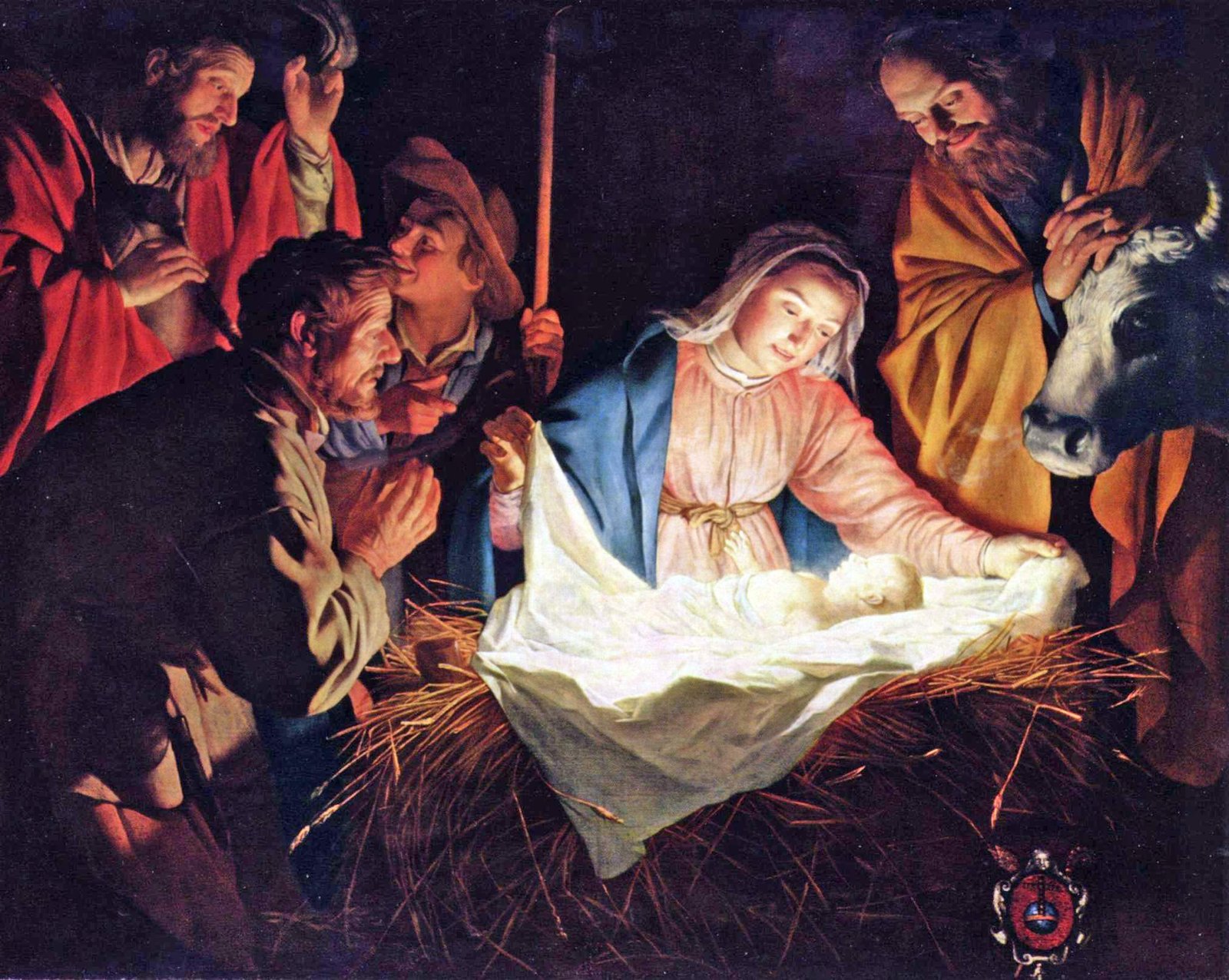Here’s a little ditty that I composed this morning while yard-saling with my lovely mother, which I submit to you as a few words to keep my plants watered. It comes in response to our good friend Eugene, who seems to struggle with the concept of figurative speech, this time with the term for Blessed Mary, “the deliverer of the Deliverer.” He has had the good faith to delete my comment, so I will share it instead with you, dear readers. I am well prayed up and in a fine mood this morning, and will not let the short-sightedness of my dear brother steal my joy! My lumbering ogre of a thesis is still lumbering along, and with hope, I pray, he may be able to rest soon.

Gerard van Honthorst. Anbetung der Hirten (Adoration of the Shepherds). Oil on canvas, 1622. [Wikipedia]
The phrase “deliverer [note the lowercase d] of the Deliverer [note the uppercase D]” is a play on words — playing on the multiple meanings of the word “deliver.” Words sometimes mean more than one thing, no? Mary delivered (i.e. gave birth to) the Deliverer (i.e. the One who saves us). Nobody is saying that Mary did anything more than that. Christ could have entered the world any way He pleased — He could have just appeared — but He chose to humble Himself, to take on human flesh, to become a defenseless child, and to be born of a human Virgin — and for that, he needed the cooperation of the Virgin, to give herself up to God’s plan, and of her spouse Joseph, who together with Mary cared for Jesus and nourished Him and raised Him. Jesus didn’t have to do it that way — Mary and Joseph didn’t have to submit to it (God respects our free will) — but He did and they did, of their own choice and will, and that is why we honor them.
I also recall your attention to a few words of Pope St. Leo the Great, “Why Christ Was Born of a Virgin.” And to the words of another fine Christian, Mark Lowry:
